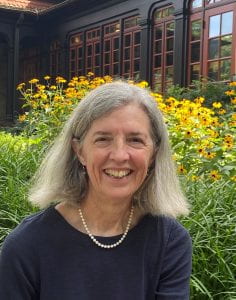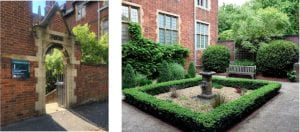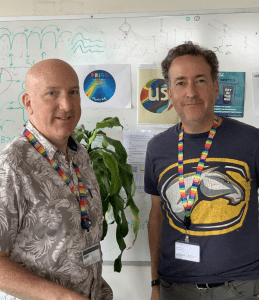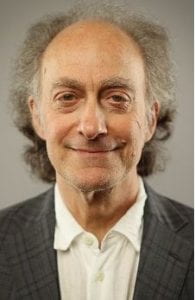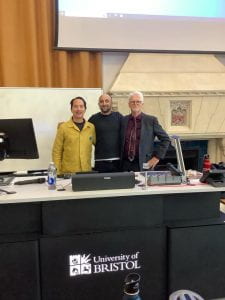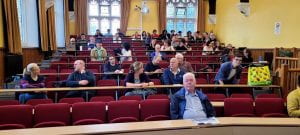This blogpost was authored by Dr Joseph Keating, from the School of Earth Sciences. In May 2024, Dr Keating and Professor Mike Benton from the University of Bristol and Dr Bethany Allen from ETH Zürich were awarded Bristol International Research Collaboration Activities (BIRCA) funding to collaborate on writing activities at Bristol.
Dr Bethany Allen is a rising star in the field of computational palaeobiology. Bethany’s cutting edge work harnesses computational tools and statistical models to understand the fossil record and the evolution of life through time. Bethany has applied her expertise to a broad range of problems, including understanding the future distribution of plant species due to climate change, investigating whether dinosaurs were already in decline before their extinction and elucidating the spatial pattern of invertebrate evolution. Bethany has a long affiliation with the University of Bristol. She is a Bristol alumnus, having completed her Masters degree here in 2017. She then completed a PhD at the University of Leeds, supervised by fellow University of Bristol alumnus, Dr Alex Dunhill.

I first met Bethany during the Palaeontological Association Annual Meeting 2023 in Cambridge. Bethany was presenting her latest research looking at how fossils impact our ability to estimate the ancestral condition of a trait. As I was working in a similar field, I immediately saw an opportunity to collaborate. Eventually I managed to pin her down and we discussed potential collaboration ideas. We settled on writing a review paper outlining the theory, methods and pitfalls of ancestral state estimation using fossils. This was largely born out of a shared frustration (as I imagine a lot of review papers are) that very few people in our field use these methods, and those that do often interpret their results incorrectly!
Bethany’s visit, supported by the BIRCA award, was for one week. Within that week we aimed to plan and write a manuscript draft intended for submission to Trends in Ecology and Evolution. On top of this, we would also jointly deliver a tutorial on ancestral state estimation, which would be free to attend for interested postgraduates and postdocs in Earth Sciences, Geographical Sciences or Biological Sciences. Bethany would also deliver a 1hr seminar to the Palaeobiology Research Group and an informal presentation to the lab group of Professor Mike Benton. This was a lot to squeeze in over one week, but we would rise to the challenge.
Bethany’s seminar and presentation were both excellent and well attended. During her seminar, she showcased her work on skyline models applied to macroevolutionary problems. In her presentation to Professor Benton’s lab group, she discussed some of her past projects and fielded questions from lab members. The tutorial we conducted together was also a great success, attracting many PhD students and postdocs who were actively engaged and asked relevant questions. In hindsight, I believe extending the workshop by an extra hour would have been beneficial, as it felt a bit rushed towards the end. We live and learn.

For my part, the biggest revelation was the collaborative writing sessions. As a postdoc, opportunities for collaborative work are rare, since postdoc research is typically independent. Therefore, working with Bethany was incredibly refreshing. We were able to exchange ideas, quickly develop a cohesive plan for the manuscript, and draft substantial portions of text. As an added benefit, I found working collaboratively helped keep me focussed and engaged. By the end of the week, we had written close to 10 pages of the manuscript.
Bethany’s visit was a great success and honestly one of the most fun weeks I have had at Bristol. I cannot emphasise how reinvigorating it was to undertake such an intensive collaborative project with someone passionate about your specialist subject. Please give it a try! We are now in the process of finishing off the manuscript and catching up over regular zoom meetings. We hope to get our manuscript submitted this summer. Watch this space!






